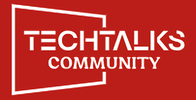|
Compiler Design involves creating software that translates high-level programming languages into machine code. This field focuses on optimizing code efficiency and resource management, critical for effective software development and execution.
This field explores the fundamental capabilities and limitations of computers. It encompasses concepts like automata theory, computability, and complexity classes, providing a theoretical foundation for what can be computed and how efficiently.
Software Engineering is the systematic application of engineering principles to software development. It covers methodologies, design, development, testing, and maintenance to ensure reliable and robust software products.
OOP is a programming paradigm based on the concept of "objects", which contain data in the form of fields, and code, in the form of procedures. It emphasizes modularity, reusability, and encapsulation, facilitating complex software development.
Computer Networks study the interconnection of computers and devices to share resources and data. It covers protocols, architectures, and security measures essential for enabling communication and resource availability across diverse environments.
Operating Systems manage computer hardware and software resources, providing common services for computer programs. This subject covers process management, memory management, and file systems crucial for the stable and efficient operation of computers.
DBMS are software systems that allow users to define, create, maintain, and control access to databases. They support the storage, manipulation, and retrieval of data, serving as the backbone of data handling in modern computing.
This involves the study of data organization, management, and processing algorithms. It is foundational for solving complex computing problems efficiently, with an emphasis on algorithm design, analysis, and application in various software solutions.
|
Join Our CommunityUnlock limitless possibilities and connect with a diverse community of technology enthusiasts. Expand your knowledge, grow your skills, and make valuable connections. Join us today!
|
|
© 2024 Tech Talks Community. All rights reserved.
